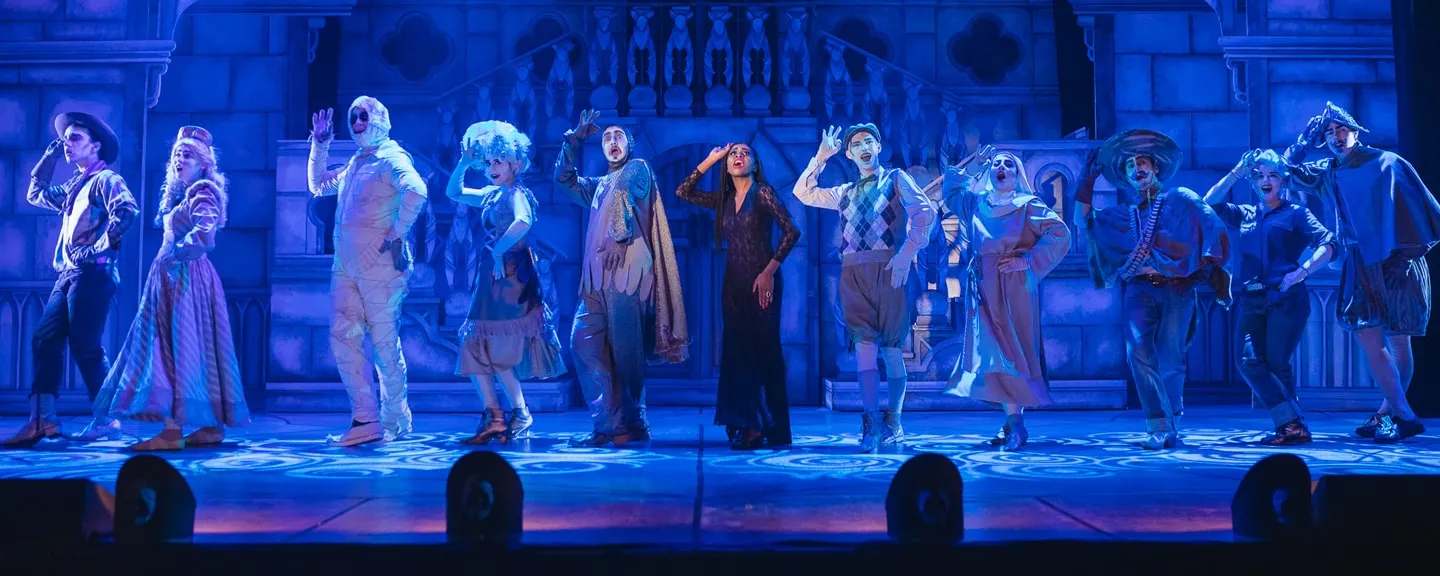- Home
- >
- APU Articles
- >
- News Article
How Colleges Select Theater Productions (and Why It Matters)
October 22, 2019 | Written By Heather Nelson

The decision comes down to three factors: practicality, relevancy, and marketability. Here’s what you need to know about the selection process, and why it matters to students, the audience, and the university as a whole.
Practicality
University theater programs strive to balance the importance of storytelling with the practicality of what their students need to learn. This is why you’ll find great diversity in shows (and mediums) during a production season.
For example, if a school puts on a stage production of Romeo and Juliet, where students run lines in Elizabethan English, that same season they might also work to produce a YouTube comedy show that dives into comedic techniques and acting for the camera.
A diversified season helps students better their craft. Productions that can be discussed and unpacked academically also foster learning opportunities off-stage. For example, during the 2019-20 season, Azusa Pacific University’s Department of Theater Arts will showcase three stage productions ripe for discussion, including Little Women: The Musical, Middletown, and the West Coast premiere of Aaron Sorkin’s modern adaptation of Harper Lee’s classic To Kill a Mockingbird (currently on Broadway), which runs in February.
These productions allow APU students who are pursuing a Bachelor of Fine Arts in Acting for the Stage and Screen or Bachelor of Arts in Theater Arts to gain valuable work experience while pursuing their mission and honing their craft.
Relevancy
Theater departments also like to choose productions that are relevant in today’s context and spark discussion. As a university’s theater department heads select the season’s lineup, they ask themselves questions like:
- What shows are meaningful and thought-provoking?
- How can we develop emerging voices?
- How can we bring current and past issues to the forefront, so they can be discussed and dissected academically?
These considerations help guide whether a show fits the current climate and the needs of the students and the audience. If it fits the bill, it can be added to the upcoming season’s schedule. This is also true of APU’s decision to produce To Kill a Mockingbird.
“There’s no better place than an educational institution to explore the tough issues within To Kill a Mockingbird,” explained Jill Brennan-Lincoln, chair of APU’s Department of Theater Arts. “All the academic approaches we’ll be taking, like talkbacks with the director and working with the diversity departments and literature experts on campus, make it a wonderful place to take a classic novel and put it on the stage.”
Additionally, the lineup should reflect the goals and mission of the theater department and the campus as a whole. For example, at APU, the Department of Theater Arts chooses productions that teach specific techniques and prepare students for roles after graduation, while teaching students how to make a difference in their field—all through a faith-based approach to actors’ professional practice and lives.
Marketability
Will people want to come to the theater to see a show? This is a question of marketability. From the campus community to the community at large, the goal of a theater production is to perform for an audience.
Choosing shows that people want to see is one of the most important factors in finalizing a production season. College theater departments need to know who their audience is, how to reach them, and, ultimately, how to get them in the seats to support the students’ hard work.
If a production can’t generate buzz and persuade people to buy a ticket, it may get cut!
Why Choosing the Right Productions Matters
The right productions can make a powerful impact in the lives of both students and audience members while cultivating the talents of a rising generation of actors and stagecraft professionals. Indeed, stories that fascinate and inspire can do just that.